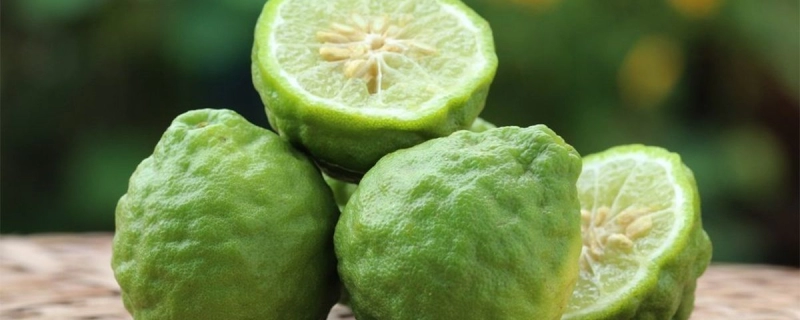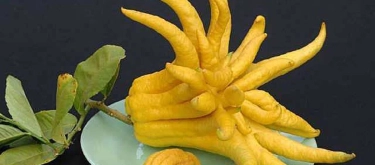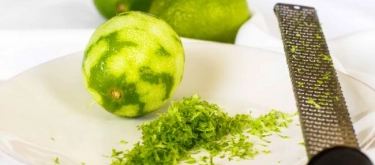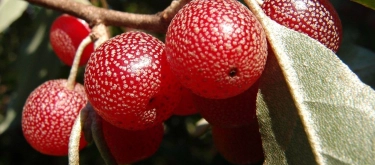Bergamot: Taste, Uses, Benefits and Harm
Bergamot is a unique citrus fruit known for its distinctive, aromatic flavor and bright, uplifting scent. Primarily grown in the Mediterranean region, bergamot is celebrated not only as a fruit but also for its essential oil, which plays a vital role in perfumery and flavoring, most famously in Earl Grey tea. This article provides an in-depth exploration of bergamot’s sensory attributes, detailed flavor and aroma analysis, diverse culinary and aromatic applications, nutritional insights, and practical guidelines for selection and storage. Additionally, it discusses optimal ways to use bergamot while addressing potential drawbacks when used excessively.

Taste, Aroma, Texture, and Visual Appearance
Taste:
Bergamot offers a complex blend of citrus sweetness with a hint of bitterness that sets it apart from other citrus fruits.
- Flavor Description: When you taste bergamot, you experience a delicate balance of tangy, slightly bitter citrus notes with an underlying floral sweetness that is both refreshing and distinctive.
Aroma:
The aroma of bergamot is its most celebrated feature, widely appreciated in both culinary and perfumery contexts.
- Aromatic Description: Bergamot exudes a vibrant, uplifting fragrance that combines fresh citrus with subtle floral and spicy undertones, creating a sophisticated and invigorating scent.
Texture:
While bergamot is not typically consumed as a fresh fruit due to its tartness and bitterness, its texture as a peel or essential oil is valued in flavor extractions.
- Texture Description: The peel of bergamot is smooth and slightly oily, which is ideal for cold pressing to extract the essential oil that captures its aromatic essence.
Visual Appearance:
Bergamot is visually distinctive, with its characteristic yellow-green color and slightly uneven, textured skin.
- Visual Description: The fruit typically features a bright yellow to greenish hue, with a somewhat wrinkled surface that hints at its aromatic intensity and the artisanal process of oil extraction.
In-depth Flavor and Aroma Analysis of Bergamot
Bergamot’s complex profile is derived from a blend of natural compounds:
- Citrus Complexity:
The fruit combines a refreshing citrus sweetness with a nuanced bitterness, imparting a balanced, multi-dimensional taste that enhances both food and beverages. - Aromatic Richness:
The essential oil contains key components such as limonene, linalool, and linalyl acetate, which contribute to its bright, floral, and slightly spicy aroma. - Flavor Synergy:
When incorporated into recipes or diffused as an oil, bergamot elevates the overall flavor by harmonizing with and enhancing other ingredients without overwhelming them. - Extraction Impact:
Cold-pressed bergamot oil retains the delicate balance of its volatile compounds, ensuring that both its flavor and aroma remain robust and true to its natural state.
Culinary and Aromatic Applications of Bergamot
- Culinary Uses:
Bergamot is most famously used to flavor Earl Grey tea, but its applications extend far beyond that.- Beverages: Infuse bergamot oil or zest into teas, cocktails, and lemonades for a distinctive citrus twist.
- Confections and Baking: Incorporate a few drops of bergamot extract into desserts, cakes, or candies to impart a unique flavor profile.
- Sauces and Marinades: Use bergamot in savory sauces or marinades to add a subtle citrus brightness that complements meats and seafood.
- Aromatherapy and Perfumery:
Bergamot oil is a key ingredient in many perfumes and aromatherapy blends.- Perfumery: It is valued as a top note in fine fragrances, offering a fresh and uplifting scent.
- Aromatherapy: Diffuse bergamot oil to create a calming, mood-enhancing atmosphere that can help reduce stress and anxiety.
- Traditional Medicine:
In various cultures, bergamot has been used for its potential digestive and mood-enhancing properties.
Selection and Storage of Bergamot
- Selecting Bergamot:
When choosing fresh bergamot, look for fruit with a vibrant, unblemished skin and a firm texture. For essential oil, select products that are 100% pure and preferably organic, ensuring a potent and authentic aroma. - Storage Recommendations:
Store fresh bergamot in a cool, dry place away from direct sunlight. Essential oil should be kept in a dark glass bottle in a cool, dark environment to preserve its volatile compounds and prevent oxidation.

Quick Facts About Bergamot
- Unique Citrus:
Bergamot is a distinct citrus fruit primarily grown in Mediterranean regions. - Essential Oil:
Its essential oil is widely used in perfumery and to flavor Earl Grey tea. - Aromatic Complexity:
Known for its bright, floral, and slightly spicy aroma. - Versatile Ingredient:
Used in both culinary and aromatic applications, enhancing dishes and fragrances alike. - Cultural Significance:
Holds a prominent place in traditional Mediterranean and modern Western cuisines. - Nutrient Profile:
While not typically consumed for its nutritional content, bergamot provides beneficial antioxidants when used as an extract. - Low-Calorie:
Adds flavor and aroma without contributing significant calories. - Global Appeal:
Valued worldwide for its unique sensory characteristics and multifaceted uses.
Benefits of Bergamot
- Flavor Enhancement:
Elevates the taste of teas, desserts, and sauces by adding a distinctive citrus and floral note. - Aromatherapy Benefits:
Diffusing bergamot oil can help reduce stress and promote relaxation. - Antioxidant Properties:
Contains natural antioxidants that help neutralize free radicals and support overall health. - Mood Improvement:
Its refreshing aroma is associated with uplifting mood and reducing anxiety. - Digestive Support:
Traditionally used to aid digestion and relieve mild gastrointestinal discomfort. - Culinary Versatility:
Its ability to complement both sweet and savory dishes makes bergamot a valuable ingredient in various recipes. - Natural and Pure:
Provides a clean, natural flavor without artificial additives when using high-quality products. - Cultural Tradition:
Enhances culinary heritage, especially in the context of traditional teas and gourmet cuisine.
Additional Nutritional Insights and Unique Varietal Details
- Core Composition:
Bergamot is primarily composed of essential oils that include limonene, linalool, and linalyl acetate. - Caloric Impact:
As a flavoring agent, bergamot contributes negligible calories, making it ideal for low-calorie applications. - Micronutrient Profile:
While used in small quantities, bergamot oil contains antioxidants that can contribute to overall health. - Processing Impact:
Cold-pressed bergamot oil preserves its aromatic and flavor compounds more effectively than heat-based methods. - Varietal Differences:
The flavor intensity and aroma of bergamot can vary slightly depending on its region of cultivation. - Extraction Quality:
High-quality bergamot oil is characterized by its potent, fresh scent and a bright, clear appearance. - Scientific Studies:
Research indicates that bergamot’s antioxidants may play a role in reducing oxidative stress and improving mood. - Culinary Innovation:
Modern chefs are experimenting with bergamot in innovative recipes, from fusion desserts to creative savory sauces.
How to Use Bergamot
- Flavoring Beverages:
Add a few drops of bergamot oil or a pinch of zest to teas, cocktails, or lemonades for a refreshing twist. - Baking:
Incorporate bergamot extract into baked goods such as cakes, cookies, or pastries to infuse them with a unique citrus and floral flavor. - Sauces and Marinades:
Use bergamot to brighten up sauces, dressings, or marinades, especially in dishes featuring poultry or seafood. - Perfumery and Aromatherapy:
Diffuse bergamot oil or use it in homemade perfumes to benefit from its mood-enhancing and stress-reducing properties. - Infused Oils:
Create flavored olive oils by infusing them with a small amount of bergamot for drizzling over salads or grilled vegetables. - Garnish:
Use a light sprinkle of bergamot zest as a finishing touch on desserts or savory dishes to add an extra burst of aroma and flavor.
Harm (Potential Negative Effects) of Bergamot
- Photosensitivity:
Bergamot oil, when applied topically, may cause photosensitivity in some individuals, increasing the risk of sunburn. - Allergic Reactions:
Although uncommon, some people may experience allergic reactions, such as skin irritation or respiratory issues, when exposed to bergamot oil. - Overpowering Aroma:
Excessive use in aromatherapy or culinary applications can result in an overpowering scent that may be unpleasant. - Interactions with Medications:
Bergamot oil might interact with certain medications, particularly those affecting liver enzymes; consult a healthcare provider if necessary. - Quality Concerns:
Low-quality or adulterated bergamot products may contain impurities that diminish their efficacy and safety. - Not for Internal Use:
Pure bergamot essential oil should not be ingested unless specifically formulated for culinary use. - Potential Skin Irritation:
Undiluted bergamot oil applied to the skin can cause irritation; always dilute with a carrier oil. - Usage Moderation:
Its potent nature means that only very small amounts are needed; overuse can disrupt the delicate flavor balance of dishes.
Conclusion
Bergamot is a truly unique citrus fruit celebrated for its complex flavor profile and distinctive, uplifting aroma. Its bright, floral, and slightly bitter notes make it a prized ingredient in culinary applications—from the signature taste of Earl Grey tea to innovative recipes that call for a touch of citrus sophistication. Additionally, bergamot oil’s potent aromatic properties have made it a cornerstone in perfumery and aromatherapy, where it is valued for its mood-enhancing and stress-relieving benefits. Use bergamot judiciously to enhance your dishes and scents, and enjoy the multifaceted benefits of this extraordinary fruit.
References
- Anderson, D. & Gupta, R. (2021). The Encyclopedia of Citrus Fruits and Essential Oils. Los Angeles: Global Flavor Press.
- Brown, A. & Smith, J. (2019). "Bergamot Oil: Composition, Aromatic Profile, and Culinary Uses." Journal of Essential Oils, 14(2), 89–97.
- Johnson, L. (2018). Bergamot: The Citrus Behind Earl Grey. New York: Citrus Science Press.
- Martinez, R. (2020). "Antioxidant Properties of Bergamot and Their Health Implications." International Journal of Food Chemistry, 12(3), 112–119.
- Garcia, P. (2018). The Global Guide to Citrus Fruits. London: Culinary Heritage Publishing.
- Kim, S. (2020). "Extraction Methods and Quality Assessment of Bergamot Oil." Food Chemistry Research, 15(4), 134–142.
- Thompson, R. (2019). "Modern Applications of Bergamot in Culinary and Aromatic Practices." Journal of Culinary Innovation, 11(1), 78–85.
- Wong, A. (2018). "Cultural and Health Perspectives on Bergamot." Journal of Ethnobotany, 10(2), 123–130.





